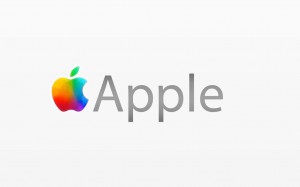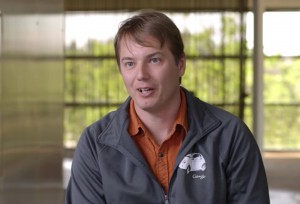
Just after it brought one of its top execs back for Project Titan, Apple lost another one: Bart Nabbe.
The war over talent in the burgeoning competition for bringing autonomous vehicles, in all their complexity, to the market during the next decade has flared again.
Apple, which has been an aggressor in the war for talent, hiring personnel from other companies, such as Tesla, Ford and Mercedes-Benz, has now apparently lost a key researcher to Faraday Future, the ambitious startup, which recently began construction of a billion-dollar plant in Nevada desert.
Faraday has apparently lured away Bart Nabbe, an integral part of Apple’s Project Titan team for the last two years. Nabbe noted on his updated Linked In profile that he is the director of strategic partnerships.
Before moving to Apple, Nabbe was a research scientist at Toyota. He also worked as an adjunct faculty member at Carnegie Mellon University, the incubator for a substantial amount of the talent the automobile business working on autonomous vehicles.
At Carnegie Mellon and apparently at Apple, Nabbe specialized in autonomous outdoor navigation, artificial intelligence, computer vision and embedded systems.
(Google loses autonomous vehicle guru. For more, Click Here.)

The face of Google's autonomous vehicle program, Chris Urmson, announced he's leaving for a "new adventure."
Apple has never confirmed that it is pushing ahead with a master plan plans for automobile industry. However, Tim Cook, Apple’s chief executive officer, said last winter that Apple was preparing to enter the car business.
While it never acknowledged the shift, the company recently brought back a trusted senior executive who helped bring to market many of the company’s signature products to oversee its efforts to build automotive program.
Bob Mansfield, Apple’s former Senior Vice President of Technologies, apparently returned to Cupertino, California. He left the company after the successful development of signature Apple products such as MacBook Air, the iMac desktop computer, as well as the iPad.
With his experience in product development and product integration, Mansfield is expected to run Apple’s automotive team, and his appointment suggests that Apple is interested in more than just software, but a full-fledged product – perhaps an electric car – rather than simply software or the artificial intelligence systems required for autonomous vehicles.
(Click Here for more about Apple bringing back Bob Mansfield to run Project Titan.)
But true to its corporate culture, Apple remains highly secretive about its intentions and its project, unlike its Silicon Valley neighbors Google and particularly Tesla and its founder Elon Musk, who seems to speak frequently about new developments.
The game of musical chairs, however, has extended to Google, which has openly courted allies in the automotive world such as Fiat Chrysler NV. Google also has its experimental Google cars now running on the roads in Silicon Valley and Austin, Texas, and made an impact in suburban Detroit where it is also opening a research center.
Apple’s not alone in this brain drain. Earlier this month, Chris Urmson, a pioneer in autonomous vehicle research at Carnegie Mellon University, who joined Google in 2009, announced he was leaving. Urmson had headed the Google car program until John Krafcik, the former Hyundai Motor America CEO, took the helm a year ago.
“I’ve decided the time is right to step down and find my next adventure,” Urmson said in a blog post. “After leading our cars through the human equivalent of 150 years of driving and helping our project make the leap from pure research to developing a product that we hope someday anyone will be able to use, I am ready for a fresh challenge,” Urmson said in a blog post.
(For the latest on Faraday Future, Click Here.)
However, with General Motors, Ford, Mercedes-Benz and FCA and the Silicon Valley companies such as Tesla and Apple not to mention Uber and Lyft, looking for talent, Urmson may not be on the sidelines for long.
